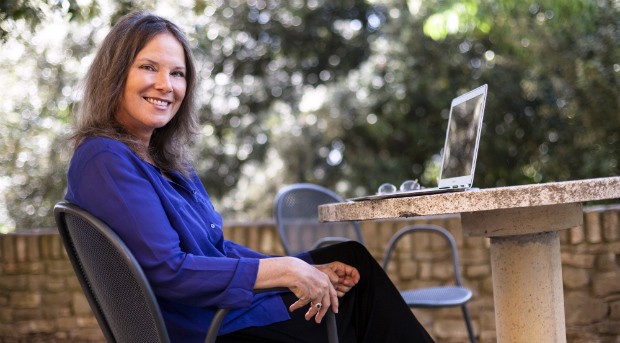Poetry with a social conscience
Sure, a great poem can simply be a poem. But more often than not, it has other dimensions — layers that Carolyn Forché says deepen our own sense of the world around us.
The American-born Forché is author of four books of poetry — the first of which, Gathering the Tribes (Yale UP, 1976), earned her the Yale Younger Poets Prize. On March 14, she will speak at Concordia as part of Writers Read, the series that brings renowned and emerging writers to campus for readings, master classes and professional development activities.
Forché does not only wear the hat of poet. She is a professor of English at Georgetown University in Washington, D.C., where she serves as director of the Lannan Center for Poetics and Social Practice. She is also working on a memoir about her days in El Salvador, Lebanon, South Africa and France.
At the same time, Forché — who in 2013 won the prestigious Academy of American Poets Fellowship — is deeply interested in humanitarian issues, something that was reflected in Against Forgetting: Twentieth-Century Poetry of Witness (W.W. Norton & Company, 1993), an anthology she edited and for which she wrote the introduction.
Last month saw the publication of that collection’s companion volume, Poetry of Witness: The Tradition in English, 1500-2001 (W.W. Norton & Company, 2014), which Forché edited alongside Duncan Wu, a colleague at Georgetown.
Poetry of Witness gathers 300 poems by authors who witnessed war, slavery, prison and other extreme conditions. In compiling the book, Forché was afforded a new perspective on history.
“You get a different picture of this experience through the eyes of poets than perhaps you would from reading newspapers or historical accounts,” she says. “The language is much more intense, and the descriptions are much more precise.”
Stephanie Bolster, an associate professor in Concordia’s Department of English, admires Forché’s ability to explore the intersection of the personal and political. Forché, she says, has a lot to offer students, especially those interested in social change and the role poetry can play in it.
“Her work, in its potential for influence, transcends what is typically expected of poetry,” says Bolster. “Her poetry is finely crafted and lyrically resonant, but it is also deeply engaged with human rights issues.”
But while Forché may be known as a “poet of witness,” her writing explores a range of subjects, including love, friendship and other aspects of the human experience.
“I just really love thinking and talking about the human imagination and language in the poetic form,” she says. “I’m not narrowed into one particular theme.”
Forché’s readers can’t be easily categorized, either. “I correspond with people who have read my work, and they’re all different,” she says. “I wouldn’t say it’s only people drawn to social justice and activism.”
Carolyn Forché will read on Friday, March 14, at 7 p.m. in Room H-767 of the Henry F. Hall (H) Building (1455 De Maisonneuve Blvd W.) on the Sir George Williams Campus.
Learn more about Writers Read.
